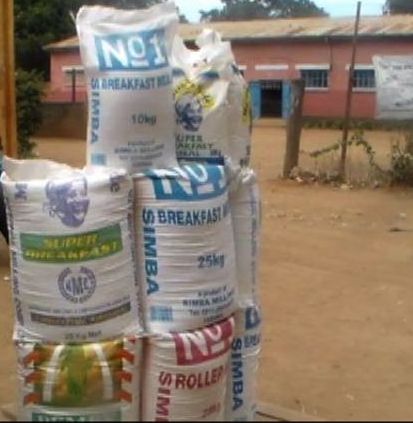The Jesuit Centre for Theological Reflection (JCTR) has observed that despite the measures government has taken to have the price of mealie meal reduced, the expected reduction has not been fully realized.
And the cost of living for the month of March 2015 as measured by the JCTR’s Basic Needs Basket for an average family of five living in Lusaka is now K3,797.55 an increase of K29.87 as compared to February BNB which stood at K3,767.68.
The JCTR’s Basic Needs Basket for Lusaka for March 2015 shows an increase in average mealie meal prices by K1.15 per 25KG bag.
According to the JCTR’s Basic Needs Basket Mpika and Luanshya are two other towns that have also recorded an average increase of mealie meal prices of K6.04 and K0.38 respectively.
The JCTR says in some areas mealie meal prices have remained static such as Chinsali,Chipata and Kasama were prices still averaged K81,K80 and K74.60 per 25KG bag respectively.
The Centre also notes that in Livingstone,Choma,Kitwe and Mansa mealie meal prices have slightly reduced from the previous month of February by K1.08,K2.38,K1.32 and K2.05 respectively.
The JCTR is concerned with current state of mealie mal prices an d the cost of living in general.
And the JCTR has attributed the increase in the Basic Needs Basket mainly to the increase in prices of food items such as Beans and Beef which increased by K11.61 and K3.00 respectively.
The JCTR has since appealed to government to implement a comprehensive package of measures that will effectively address the high cost of living in general and the high mealie meal prices in particular.
It wants Government to speed up the setting up of milling plants in rural areas and also offer incentives to local business entrepreneurs to set up milling plants.
The JCTR notes that this will not only result in mealie meal price reduction but promote local business ownership and sustainability.
The JCTR has further urged Government to work with various stakeholders towards reviewing and diversifying the Farmer Input Support Programme (FISP) to make it more efficient in reaching the intended beneficiaries-the poor and guaranteeing that the Programme indeed achieves its purpose of poverty reduction.
 Q FM Africa's Modern Radio
Q FM Africa's Modern Radio